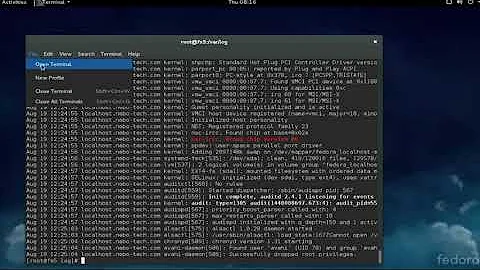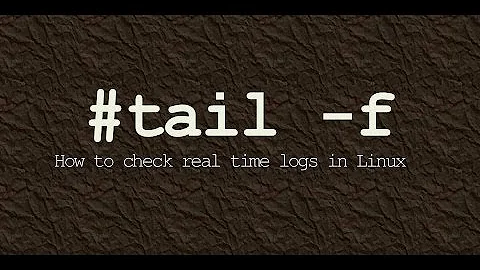How to view linux kernel logs live?
Solution 1
Have you tried tail -F, eg.
tail -F /var/log/messages
Solution 2
You can:
- execute dmesg every second:
while true; do dmesg -c; sleep 1; done - print everything appended to /var/log/messages:
tail -f /var/log/messages - dump the logs on the serial port and read them on another PC. You will need to add to your kernel boot parameters:
console=ttyS0,115200 console=tty0 ignore_logleveland removequiet
Related videos on Youtube
Shahbaz
Color discrimination is racism. Be it skin color or passport color. I am a generalist, currently working at Google on ANGLE. Previously, I was a graphics programmer at Eidos Montreal working on the Shadow of the Tomb Raider. Before that, I was a Roboticist working on embedded and realtime systems. I got my PhD working on robotic skins, both their firmware and their real-time driver/software. My bachelors has been in Software Engineering with a personal focus on algorithms. Feel free to check out my gitlab account for some goodies, like tutorials on Vulkan, data structures in C, C bindings for pandoc and more!
Updated on September 18, 2022Comments
-
Shahbaz over 1 year
I have a kernel module logging input of some sensor while I work with it. I want to see if there is a command that outputs /var/log/messages (for example) but waits for more logs to come. That is, some program like
dmesgexcept that it stays on and keeps printing newly-come logs. -
 Admin over 12 yearsThanks that's what I wanted. I read the man page for
Admin over 12 yearsThanks that's what I wanted. I read the man page fortailbut the part for-fwas not at all understandable to me. -
 Admin over 12 years@Shahbaz : Be careful if you are looking at a file that is
Admin over 12 years@Shahbaz : Be careful if you are looking at a file that islog rotated, i.e. logs are automatically archived, like syslog.0, syslog.1.gz etc.. As soon as the file you watching is rotated, you won't see any new lines. You have to restart tail -f. (At least this is the case on my system) -
 Admin over 12 years@Xavier T. Thanks. I was just doing this for a small test however to see if my driver worked
Admin over 12 years@Xavier T. Thanks. I was just doing this for a small test however to see if my driver worked -
ar. over 12 yearsYou can of course use the
tail -Fcommand which watches for changed/rotated files and continues to watch the file with the given name.




